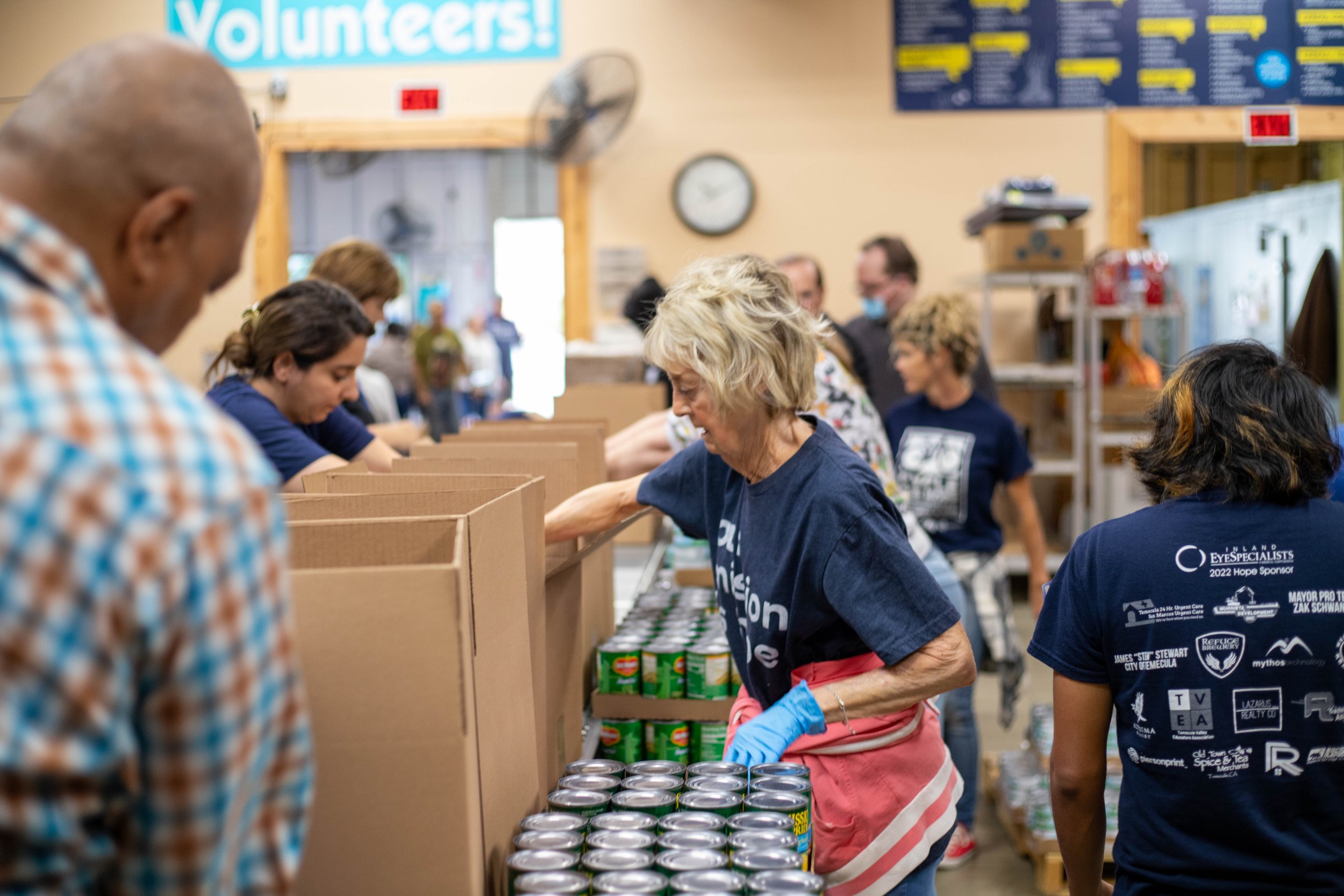The Bridge Over Troubled Water Food Pantry stands as a testament to resilience and community support in the face of adversity. Initiated as a humble endeavor, the pantry serves not merely as a repository for foodstuffs but as a beacon of hope in the lives of many individuals and families facing precarious circumstances. In this exploration, we will examine the cultural implications of such community initiatives through the lens of cultural relativism, posing the question: What does it mean to serve one’s community in an increasingly globalized world? Moreover, do local understandings of charity and food distribution pose perplexing challenges for both service providers and recipients?
To adequately appreciate the significance of the Bridge Over Troubled Water Food Pantry, it is imperative to first understand the context in which it operates. Food insecurity is a pressing issue across various cultures, often exacerbated by socioeconomic inequalities, systemic poverty, and cultural stigma associated with receiving assistance. This pantry not only addresses the immediate need for sustenance but also cultivates a sense of belonging and dignity among its patrons. Its operations reflect a broader cultural narrative that intersects with themes of community, responsibility, and mutual aid.
From the perspective of cultural relativism, it is critical to acknowledge that the values, practices, and beliefs surrounding food distribution vary significantly across different societies. In many cultures, sharing food is an intrinsic part of social cohesion. However, in contemporary urban settings, where individualism often dominates, the act of accepting help can be fraught with complex emotional and social ramifications. How do cultural narratives surrounding charity impact individual willingness to seek assistance, and do these narratives inadvertently perpetuate cycles of stigma?
Furthermore, the operational structure of food pantries like Bridge Over Troubled Water is often rooted in the availability of resources, community engagement, and volunteer work. These pantries frequently rely on donations from local businesses, faith-based organizations, and individual patrons. This raises a pivotal question: Is the sustainability of such initiatives contingent upon community goodwill, or does it expose a deeper vulnerability tied to the fluctuations of economic prosperity? As charitable endeavors often hinge on the benevolence of donors, they might inadvertently reproduce inequalities in their own right.
Additionally, cultural relativism invites a nuanced understanding of the motivations behind food handouts. Are they a mere act of charity, a manifestation of cultural obligation, or perhaps a strategic intervention aimed at addressing systemic failures? For example, in certain cultures, food redistribution is intertwined with communal values that prioritize collective well-being over individualism. This framework champions the idea that community members have an ethical responsibility to care for one another, effectively reshaping perceptions of what it means to be ‘in need.’ Consequently, the Bridge Over Troubled Water Food Pantry encapsulates this ethos by uniting diverse community members under the shared goal of alleviating hunger.
Yet, as we examine the dynamics of food pantries, we must confront some pertinent challenges. The concept of ‘food equity’ raises critical inquiries: How can food pantries ensure that their offerings are culturally appropriate and reflective of the community they serve? What happens when the available resources do not align with the dietary practices and preferences of diverse ethnic groups? Such oversights not only risk alienating those they aim to assist but can also reinforce underlying cultural biases that marginalize specific populations. Thus, the challenge lies in straddling the fine line between providing accessible food options and respecting cultural diversity and dietary restrictions.
Moreover, the operational longevity of food pantries like Bridge Over Troubled Water relies heavily on community perception. To foster a more inclusive environment, it is essential that food distribution models engage with the cultural fabric of the community. This means adopting practices that honor local culinary traditions and preferences, creating a unique blend of sustenance that resonates with a diverse clientele. Such inclusivity not only addresses immediate nutritional needs but also serves to validate cultural identities, thereby uplifting those involved.
Despite these challenges, the establishment of the Bridge Over Troubled Water Food Pantry manifests an optimistic endorsement of community resilience. It represents a collaborative framework where individuals are inspired to contribute, whether through donations, volunteering time, or spreading awareness. This synergy reflects a culture of solidarity, wherein the act of sharing transcends mere transactional exchanges, embracing the richness of human connection.
As we ponder the trajectory of food pantries in a globalized society, it becomes clear that their mission extends beyond alleviating hunger. They are vehicles for social dialogue, opportunities for cultural exchange, and laboratories for testing innovative solutions to persistent societal issues. In recognizing the value of cultural relativism, organizations can create more effective outreach strategies that resonate with those they aim to support.
Ultimately, the Bridge Over Troubled Water Food Pantry serves to illuminate the intersections of culture, community, and compassion. By fostering a sense of belonging and honoring the diverse tapestry of experiences within the larger community, food pantries can catalyze change that reaches far beyond the immediate act of food distribution. In addressing the challenges posed by cultural diversity in food assistance programs, stakeholders can pave the way for a more equitable and humane society.
